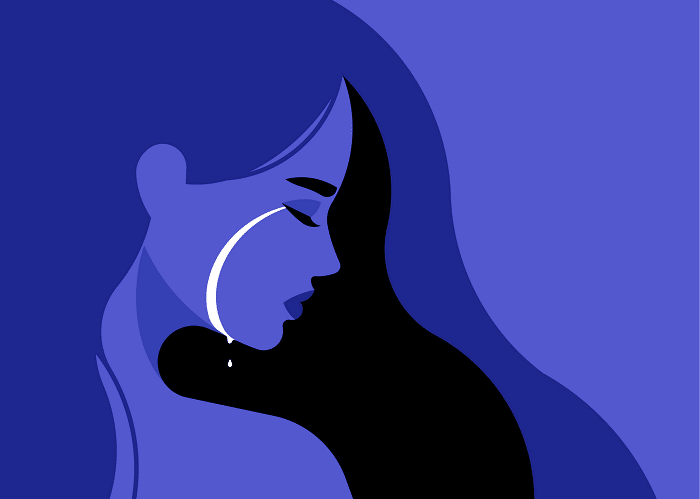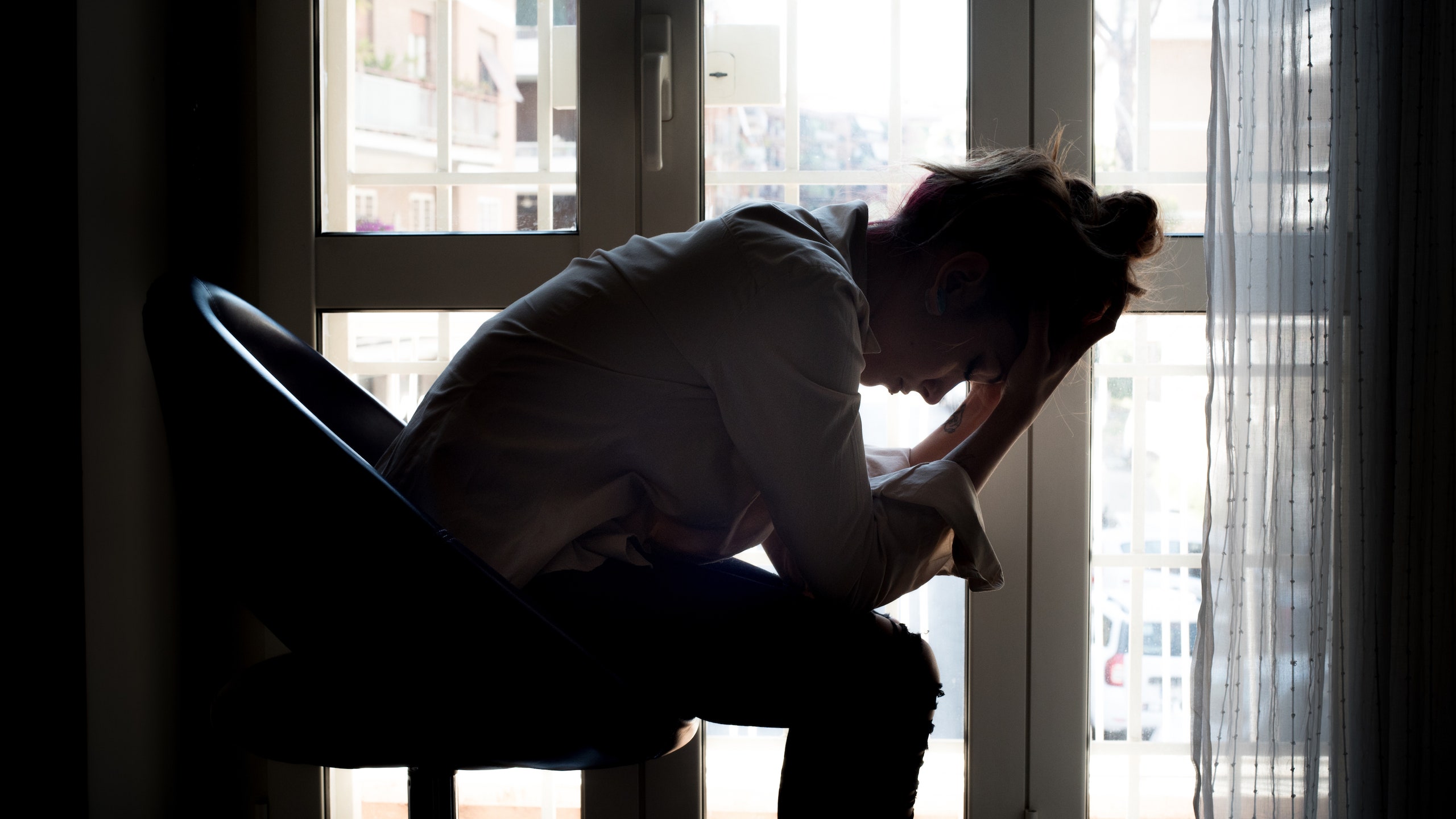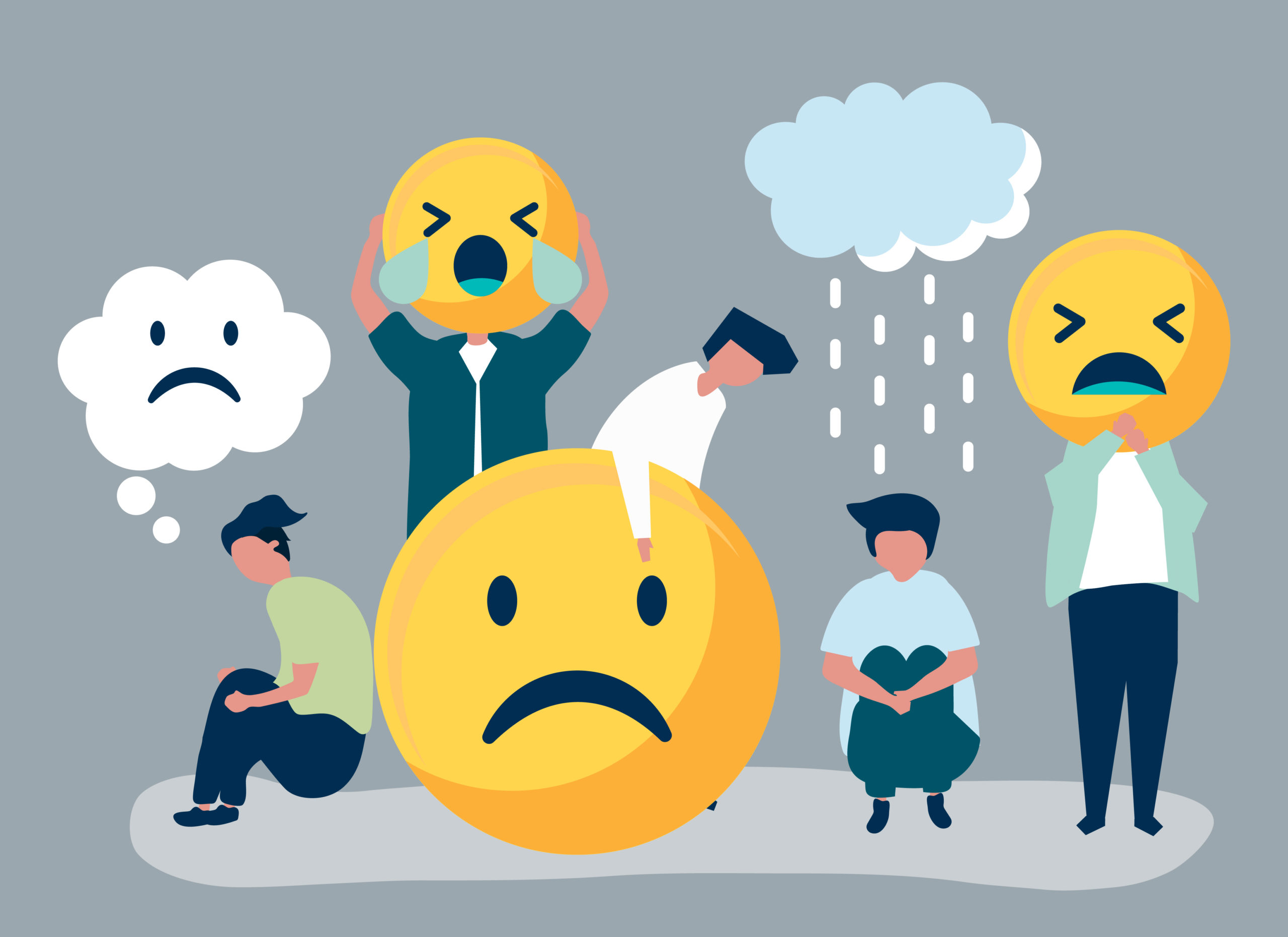- A Quick Guide
- Depression symptoms
- 1. Persistent low mood
- 2. Losing pleasure or interest in nearly all activities
- 3. Increase or decrease in appetite/weight
- 4. Increase or decrease in sleep
- 5. Feeling agitated/restless or slowed down
- 6. Experiencing fatigue or loss of energy
- 7. Feeling worthless or excessively guilty
- 8. Difficulty in thinking, concentrating, or making decisions
- 9. Thoughts of dying/planning/ or attempt at committing suicide.
In our previous article, we discussed the signs of depression: how to know if you are depressed. Check that out if you haven’t already. Whereas this article will follow a discussion on major depressive disorder symptoms by illustrating how depression symptoms exhibit in your daily life with examples. So that you can get a better understanding of its manifestation in your everyday behavior, mood, thoughts, emotions, and body.
A Quick Guide
Depression symptoms include persistent low mood, loss of interest or pleasure in activities, changes in appetite and weight, sleep disturbances, feeling agitated or slowed down, fatigue or loss of energy, feelings of worthlessness or excessive guilt, difficulty in thinking and concentrating, and thoughts of dying or suicide. It is important to seek help from a healthcare professional if experiencing these symptoms or noticing them in others.
Depression symptoms
A person undergoing depression shows five or more of the following symptoms for at least two weeks or more:
1. Persistent low mood
A depressed person may frequently report that he is feeling sad, down, hopeless or discouraged. Some people manifest their low mood through their facial expressions i.e. They often look like they are about to cry. Whereas others may actually start crying at minor triggers throughout the day. Some individuals may not cry at all and report that they have no feelings or that they feel ‘nothing’ or ‘blah’. A few people may feel anxious as well as depressed. Others may focus more on their somatic or bodily complaints/pain rather than expressing their feelings. Still, others may express their low mood through anger, irritability, and frustration. They may respond to daily events with anger outbursts and often blame others for minor everyday things. In short, the expression of depressed mood may vary across individuals.

2. Losing pleasure or interest in nearly all activities
Loss of interest or pleasure simply means that activities or hobbies which were previously enjoyed are no longer interesting for the individual. He may report that he doesn’t care or that he doesn’t feel joy or happiness while doing these activities. Such an individual may gradually start to withdraw from social events and personal hobbies. For example, a teenager who was previously passionate about painting gradually stops painting altogether or makes excuses to not paint.
3. Increase or decrease in appetite/weight
While a person is depressed, he or she may find it difficult to be excited about eating. They may experience that they have to force themselves to eat. Due to this, they lose weight. Still, others may experience the opposite i.e. their appetite increases considerably and they frequently start to crave specific foods like desserts, carbs, fried food, etc. Likewise, they may gain weight.
4. Increase or decrease in sleep
Sleep disturbance is common among people who are depressed. Some people have difficulty sleeping. They may wake up during the night and have trouble falling back asleep. Others may find it difficult to sleep at all. Still, others may experience the opposite and sleep more than usual for long durations of time even during the day.
5. Feeling agitated/restless or slowed down
In depression, a few individuals feel agitated and find it difficult to sit still. They may pace around or constantly do something with their hands such as folding their clothes, touching other objects, rubbing their skin or pulling it, etc. Whereas some people may exhibit psychomotor retardation. For example, their speech may slow down along with their thinking and body movements. They may pause a lot while speaking, use a low tone to talk, may become excessively quiet, or stop talking about different things altogether. This may or may not be observed by their loved ones.
6. Experiencing fatigue or loss of energy
A lot of depressed people report that they feel tired and exhausted even when they do not physically exert themselves. They find that even doing the simplest tasks requires a lot of energy and effort. Due to this, they struggle with effectively completing everyday tasks such as dressing in the morning, washing the dishes, making dinner, etc.
7. Feeling worthless or excessively guilty
Feeling unworthy or guilty about past mistakes or minor failures is prominent among individuals who are depressed. They may ruminate, consider themselves failures, and blame themselves even for the smallest of things. This guilt may become excessive enough to become a delusion e.g. a person may believe that his country is poor because he doesn’t give enough charity.
8. Difficulty in thinking, concentrating, or making decisions
Some depressed individuals experience difficulty in organizing their thoughts and concentrating on everyday tasks. They may complain of memory troubles especially if they are old. This may negatively affect their performance at school or work e.g. grades may drop or they may get a poor work report etc. Making everyday decisions is also a struggle for them.
9. Thoughts of dying/planning/ or attempt at committing suicide.
In depression, an individual may not look forward to waking up in the morning. They may think that the world would be better if they did not exist. Whereas others may think more active suicidal thoughts. They may plan to commit suicide and take measures for it. For example, clearing their debts, sorting out personal belongings, meeting old friends for the last time, preparing a method to kill themself, etc. Some people may even attempt suicide which may be complete or incomplete depending on the circumstances.
Note: If you think you are experiencing the above depression symptoms or have noticed anyone else who is experiencing this, contact their loved ones immediately and take them to the nearest psychiatrist or mental health professional for getting the help they need.
Watch: [Behavior Changes During Depression]
To find out more about depression, check out the related articles.



 High functioning Autism & Depression: What you need to know
High functioning Autism & Depression: What you need to know  Crippling Depression: Learn To Recognize It & Cope Effectively
Crippling Depression: Learn To Recognize It & Cope Effectively  Clinical Depression (MDD): Symptoms, Assessment & Treatment
Clinical Depression (MDD): Symptoms, Assessment & Treatment  Major Depression: Symptoms, Causes, Risk Factors & Treatment
Major Depression: Symptoms, Causes, Risk Factors & Treatment  Understanding Depression And Anxiety
Understanding Depression And Anxiety  Signs of Depression: How to know if you are depressed
Signs of Depression: How to know if you are depressed